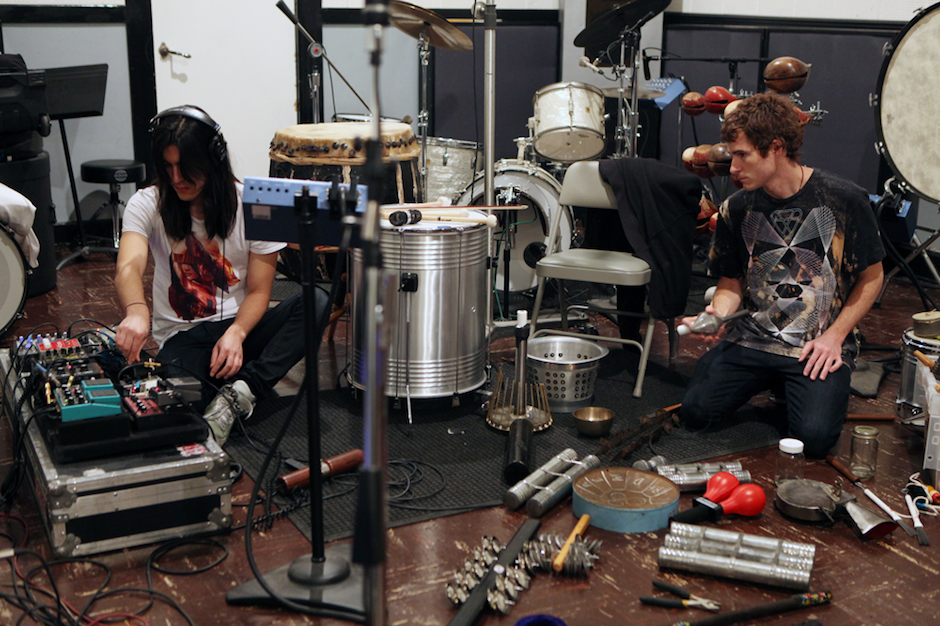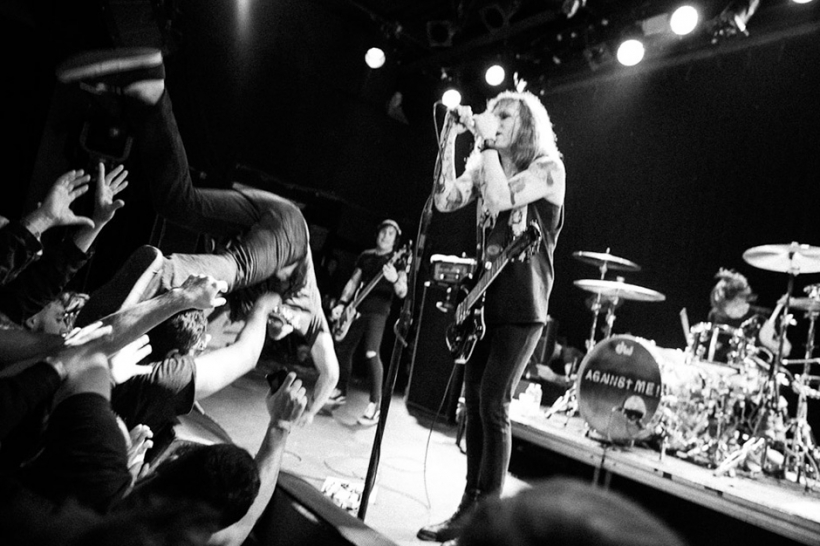The road to Max Payne 3‘s release earlier this week for Xbox 360 and PS3 (the PC version releases May 29) has been a long one, both for fans of the titular badass and the world-weary character himself. For the uninitiated, Rockstar Games, of Grand Theft Auto fame, first introduced Max Payne in 2001. He’s a hard-boiled New York City cop seeking answers for his wife and child’s untimely demise at the hands of junkies addicted to a designer drug. Max’s Mickey Spillane-esque story leaves him framed for murder and embroiled in a grand conspiracy involving a secret society called the Inner Circle, the game’s version of the Illuminati.
A 2003 sequel followed, wherein Max battled Russian mobsters with ties to the Inner Circle who are bent on silencing him. Despite his survival at the end of Max Payne 2, Max is left a broken man. Now a full-blown alcoholic addicted to painkillers, Max, continues a downward spiral that leads him to Brazil, where he works security for a wealthy family in the grimy streets of Sao Paolo, searching for a new life — or at least a fitting end to his current one. And as those who have followed his story over the last 11 years can attest, the perpetually bedeviled Max once again ends up with more questions, and dead bodies than he does answers.
A dark and brutal story set in a vibrant, stylish world, Max Payne 3 is far and away one of the most enthralling action games ever made. And like all of Rockstar’s titles, the music is integral to the overall experience. But how do you convey the tragic, über-noir nature of Max Payne while ensuring the player feels like a cinematic action hero painting Sao Paolo’s favelas with the brains of a thousand thugs?
Enter HEALTH. Rockstar called on the experimental L.A. band to create a dynamic score for Max Payne 3 that would ebb and flow along with whatever was happening on screen, a method Rockstar successfully incorporated into 2010’s critically acclaimed western Red Dead Redemption. SPIN spoke with HEALTH’s John Famiglietti on what is was like scoring a Max Payne game 7.5 million copies, countless ersatz bullets, and one Mark Wahlberg movie after the last one.
How did you get involved with Max Payne 3?
Rockstar kind of cold-called us. We heard that they wanted to talk to us and then they came to our show in New York.
Were you familiar with Max Payne or Rockstar before?
Yeah, totally. I play video games, I know all that stuff!
Do you have any favorites now?
I like Dark Souls. It’s super-hard. That’s why it’s so cool.
Max Payne 3 is also quite challenging itself.
It is. I’m really stoked on the difficulty. It’s really satisfying.
Game development is often quite secretive. Did you see much of the game before starting on any music?
Yeah all the music we did was to video captures of someone playing the level or, like, a game tester playing through it really fast. Anything we’d record, we’d play to the video to see if it sounded good.
The music is very dynamic with various bits coming in and dropping out depending on the action. Is that your doing or is that something they wanted?
We tried our hardest just to do our thing. If they wanted something specific they would reference other songs we had that might be a good idea. We tried to have each area sound different. There are sounds that don’t come up until certain parts of the game that then continue through later levels. Creating music for each area was a lengthy process and we’d have to revisit and revise constantly when stuff in the game would change during development. But there’s six stems and they can be combined in different combinations to make up the music in the level with varying intensities. We’d just start using that as a guide, like there’s always a “suspense one” or a “shoot out one” and of course they move around, but that’s where we’d start: with six pieces of music and then write down the combinations that we thought were good with the gameplay.
Had you ever done any scores or soundtracks before?
No. Never.
How would you compare scoring a game compared to making a record?
It’s not even related almost. It’s really different. You’re making it to work to support the action. And it’s got to loop because its video game music. Combining all your stuff… I mean, you wouldn’t want to write a song like that for any reason.
Did you go back and listen to music from the previous Max Payne games?
We wanted to be true to game and especially the fans that have been super fans of the game. Obviously our sound is really different, but we kind of justified where Max is in his life and his mental state, being in Brazil. We would associate those things with our sound. Certain levels we would reference the older Max Payne music, or stuff inspired by those sounds. Like we have cellos in there for some things, and melodically — even with our weird sounds — we would reference stuff in the Max Payne theme.
Have you been to Brazil?
Right when they were talking about hiring us we had just booked a tour to Brazil so we got to go right as we were starting the process.
Did you know what you wanted to use going in or did you discover new instruments?
No, we had no idea. We just sort of went through a process of finding out what we felt worked with the game. A lot of Brazilian percussion doesn’t sound really threatening – it’s really fun, you know. So it was about finding a way to make it work both with our stuff and with the game.
How many pieces would you say you came up with?
I don’t know… hours! I think it was up to nine hours and they asked us to do six but so much of it is not used or you change it totally because the level changes or there would be a different decision made on how the level should play out.
There’s been a couple games that also have evolving, dynamic soundtracks. But it’s still kind of a pioneering sound for games.
That’s how Rockstar did Red Dead Redemption. It wasn’t the same configuration, but it was the same idea.
What do you see as the future of game soundtracks?
I think actually they will probably end up getting even more tailored to the action or even more tied into the scripting. The thing is, because the length of time it takes to get through a level fluctuates, they’ve got to loop and they’ve got too change a lot. We’d love to work really hard with the scripter and come up with a really intensely related cue system of how the game goes – that would be great. But that is also an ass pain. It takes so long to make the game that there’s usually a lot of issues along the way.
Are Rockstar putting out the Max Payne 3 soundtrack?
Totally, yeah. It’s coming out digitally May 23. It’s pretty much just us but there will be one bonus track by Emicida, who is a big Brazilian rapper.
What will HEALTH fans think of your Max Payne 3 score?
There’s a lot of things we wouldn’t normally do — but it’s still guided by the aesthetic rules of the band. It still sounds like HEALTH. But it’s not like movie music. Our music is not like that at all.
What’s next for HEALTH?
New record. That’s what we’re doing. Once this thing is fully in the clear, we’re starting a new record immediately. It’s half done and we had to stop working on it to do Max Payne. We’re trying to get it to come out this year. Max Payne took so much longer than we ever knew it would go. It was a rough one but it was a great experience and we’re super stoked.





